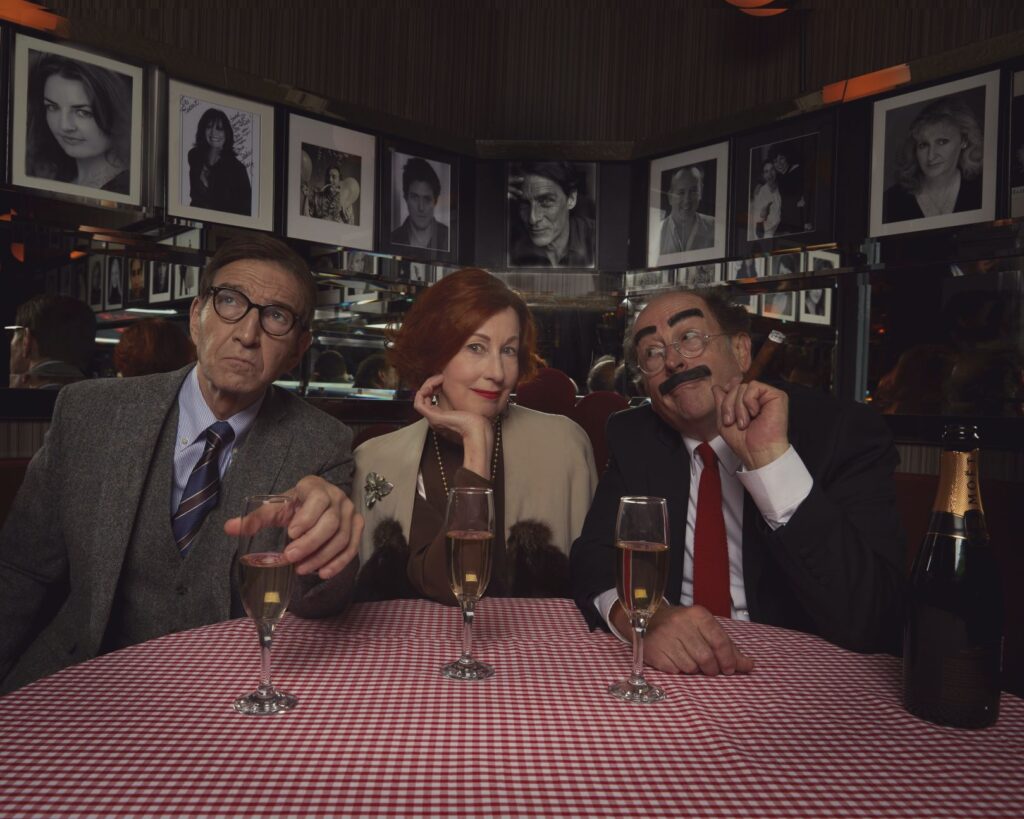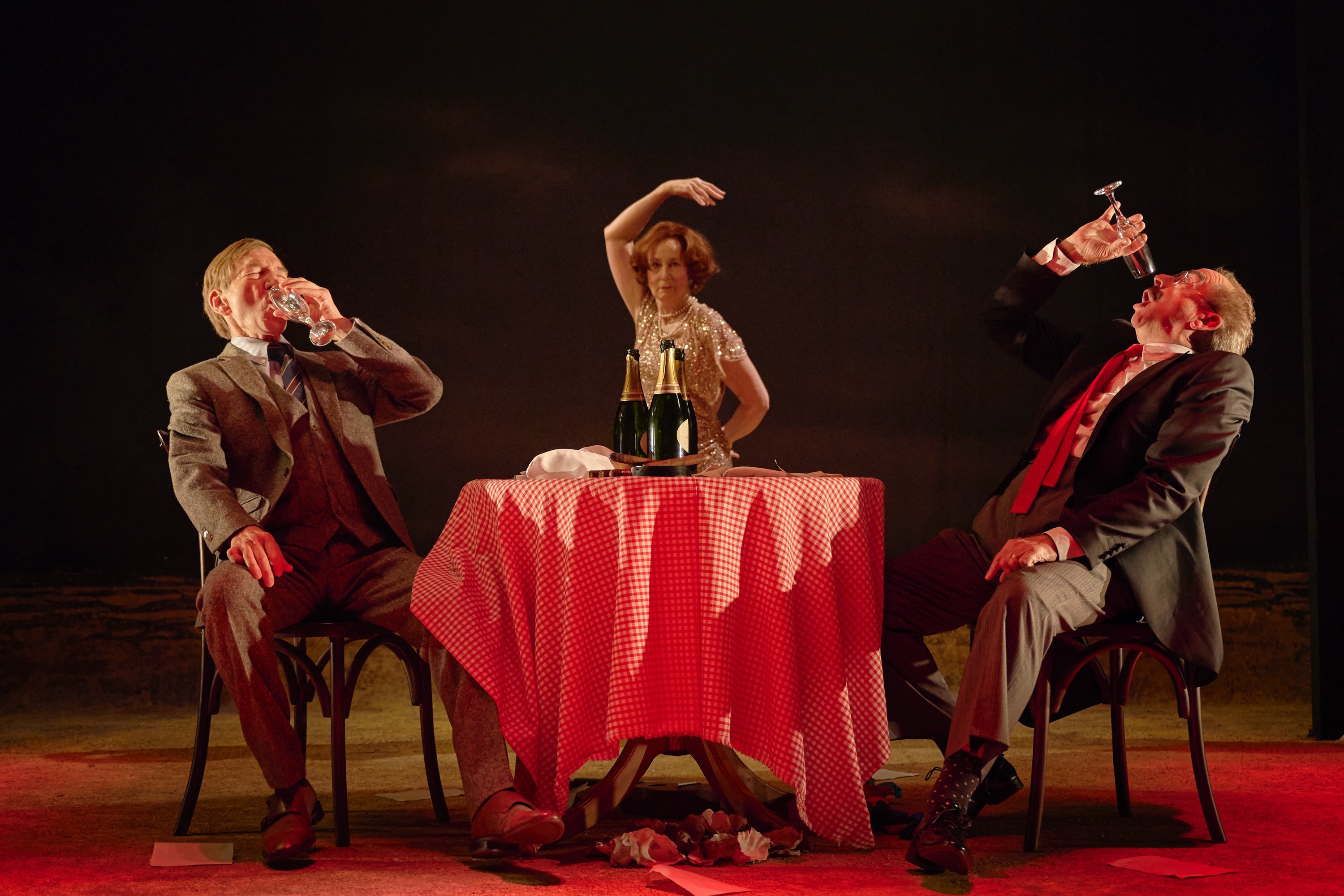
2 – 5 November
An imaginary meeting between two brilliant men offers fertile if dangerous ground for drama. And this intriguing one-acter from veteran writer Frank McGuinness is a bold yet flawed attempt to live up to its aspirations.
The play is based on a real-life encounter between the New York comedian Groucho Marx and his countryman, the poet TS Eliot. The poet admired Groucho and asked for a signed picture. Groucho complied, the two men corresponded, and in 1964 they met in Eliot’s London house.
McGuinness has shunned social realism, setting his drama in a mysterious netherworld restaurant, presided over by an imperious female proprietor. She enters as a Madame Sosostris figure, conjuring her guests through incantations and with the help of a pair of upturned wine glasses. References to Dante and traces of ‘The Waste Land’ suggest a landscape hovering somewhere between life and death.
Despite the enigmatic opening, Dinner with Groucho is based on evidence of what transpired at the real-life dinner. According to a letter from Groucho to his brother Gummo, the meeting included a discussion about King Lear and a consideration of the state of Israel. Eliot, an Anglo Catholic, was an infamous antisemite. In a 1934 lecture he had praised ‘unity of religious background’ adding ‘reasons of race and religion combine to make any large number of free-thinking Jews undesirable.’ The remarks were denounced in the English press and Groucho, Jewish himself, can’t have been unaware of the slur. Thus, the exchange about the state of Israel must have been laced with tension. Yet the potential for conflict is never fully explored in McGuinness’ dramatic reimagining.
The sense of something missing is apparent throughout. There are jokes about ‘Duck Soup’, Groucho’s cigar, and King Lear dying from excess of cholesterol. The dialogue is often witty as well as rich in literary and cinematic allusion. Yet the result can feel a little like an exercise in spotting cultural references. Theatre should be more than a test of the audience’s erudition.
In keeping with the purgatorial mood, the setting is otherworldly. In the opening moments, glowing globes suggest moons or planets dangling in black night. Day breaks on a shifting Stygian landscape which might be swamp, ocean or riverbed. As the dinner progresses the sky shifts through pinks and blue to darker hues, hinting at the philosophical enigmas of Eliot’s poems. But what works in poetry or prose doesn’t necessarily work on stage and the most powerful moments come when the characters break out of nostalgic ruminations to throw them self about in the song and dance routines of the music halls.
Ian Bartholomew is a powerful physical presence, bringing Groucho to life with a well- judged repertoire of mimicry. Greg Hicks has the harder task as the buttoned-up poet. Only when he fulfils his physical potential as a magician or dancer does he seem truly at home. The proprietor, played by Ingrid Craigie, is an intriguing combination of spiritual medium and shadowy restaurateur with a hint of Groucho’s powerful female antagonist, as portrayed by Margaret Dumont in the famous comedies.
Director Loveday Ingram maintains a good pace throughout but though Dinner with Groucho interests, it rarely engages. Like the characters in Eliot’s poetry, these well-known figures seem doomed to go through the motions of life in death and death in life in a script which lurches effortlessly from witty banter to theatre of the absurd, but which never quite touches the heart.
★★★☆☆ Ros Carne 3 November
Photo credit @ Ros Kavanagh


